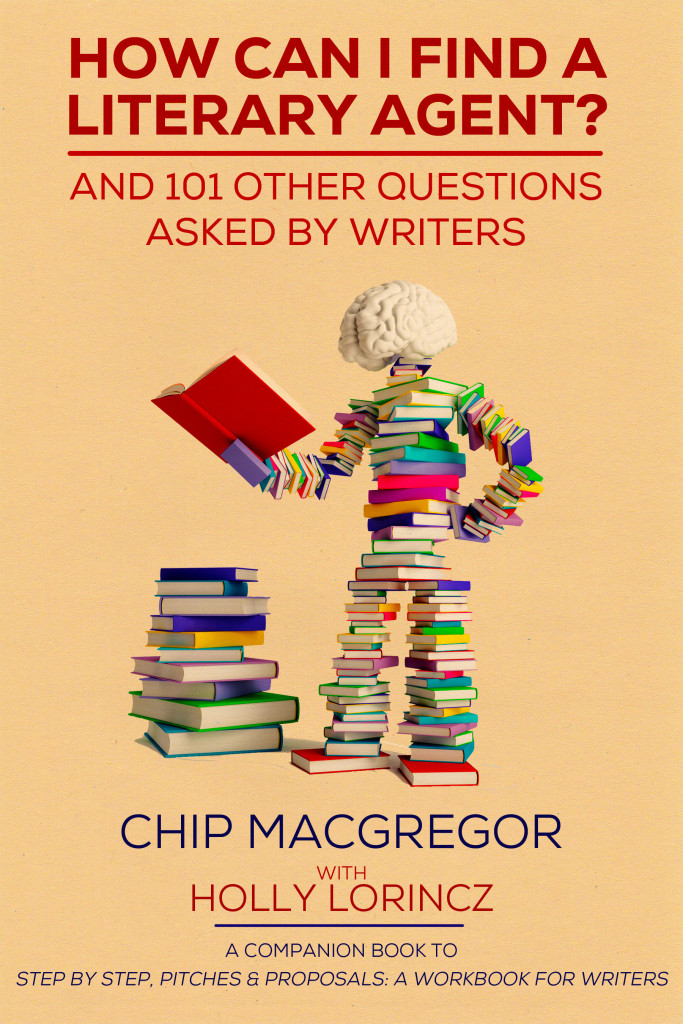- Agents
- Author News, Deals
- Awards
- Bad Poetry
- Blog News
- Books
- Career
- CBA
- Collaborating and Ghosting
- Conferences
- Current Affairs
- Deep Thoughts
- Favorite Books
- Featured
- Film
- Marketing and Platforms
- Proposals
- Publishing
- Questions from Beginners
- Quick Tips
- Religion
- Resources for Writing
- Self-Publishing
- Social Media Critique
- The Business of Writing
- The Writing Craft
- Thursdays with Amanda
- Trends
- Uncategorized
- Web/Tech
Category : Current Affairs
-
Continue Reading "What have you always wanted to ask an agent?"
What have you always wanted to ask an agent?
I started this blog nearly ten years ago (we’re coming up on the ten year anniversary for this blog), as a way to simply answer the questions writers have about the process. Some people wanted to ask about writing, others about publishing, still others about marketing. Writers asked about careers, they asked about proposals, and they asked about contracts. Lately we’ve had a ton of people asking about indie publishing and working with Amazon to become a hybrid author.
Over the next couple of months, I thought we’d do an “ask me anything” segment. So… what have you always wanted to ask a literary agent? I’ve got a backlog of questions, but I thought I’d begin by simply asking the people who read this blog a question: If you could sit with me over a cup of coffee or a glass of wine somewhere, and ask anything you wanted, what would you want to know? What would you like to chat about?
Drop a question in the “comments” section below, or send me an email at chip (at) macgregorliterary(dot)com, and I’ll try to offer short answers to your questions. You can ask about books, about proposals, about writing, career planning, marketing, platforms, proposals, or anything else. If I don’t know an answer, I’ll ask someone who does. If they don’t know, I’ll just make up something that sounds good. (Or maybe I’ll ask someone else.)
So there you have it — October is gong to be “ask the agent” month. Send me your tired, your poor, your huddled questions yearning to breath free. I’ll do my best to get you a good response.
-Chip
-
Continue Reading "Ask the Agent: How do I transition from self-published to traditionally published?"
Ask the Agent: How do I transition from self-published to traditionally published?
We’re doing “Ask the Agent” for the entire month of April, so you have a chance to send in that question you’ve always wanted to discuss with a literary agent. The other day someone sent this: “What does it take for a book to transition from being self-published to being picked up by a traditional publisher? If an author wanted to make that transition, what would you recommend? Do I take down the manuscript and pitch as fully revised?”
Great questions (and there were a bunch of other questions asked by this author, which I’ll try to speak to in my answer). Let me try and cover some important ground with ten thoughts…
First, just to be clear, I am very supportive of indie publishing. We represent more than 100 authors, and all of them have heard me say that I think they need to at least consider self-publishing as a means of helping to make a living in a competitive and changing publishing environment.
Second, I don’t believe that indie publishing is second class citizenry, and that traditional publishing is necessarily the preferred means of making a living. I think authors need to look at all their options. (For the record, I also don’t believe in the myth that all you have to do is post your book on Amazon, and watch the Publishing Fairy show up and sprinkle you with golden coins. Both traditional and indie publishing can work — but both can also fail. Making a living writing is a lot of damn work.)
Third, if you’re successfully self-publishing, selling books and making money, you’d have to think long and hard before transitioning to a legacy publisher. The benefits they offer include giving you potential distribution in stores, more marketing muscle, and obviously taking on the production, warehousing, and order fulfillment of your books. But you’ll make less per book, and have less control over things like
-
Continue Reading "A Christmas Break"
A Christmas Break
Hey, it’s Christmas. Nobody in publishing really works much over the Christmas break. On top of that, we’re in the midst of a major overhaul of our website and blog, so in a week or two, you’re going to see an all-new look on this site. And on top of THAT, Chip is having shoulder surgery, so he’s going to be down for the next couple of weeks. But we’ll be back soon, with a new look, new questions, new posts, and a whole new vibe. Thanks for sticking with us… and MERRY CHRISTMAS!
—The MacGregor Literary team
-
Continue Reading "Can the Audiobook Save B&N?"
Can the Audiobook Save B&N?
This week in Publishing & Technology we’ll be talking about audiobooks. As Yasmine Askari reported on the Digital Book World last week, Barnes & Noble recently announced the launch of a Nook audiobooks app for iphone and ipad, as well as a new website to support the app with more than sixty thousand audio titles available to download without the purchase of a subscription. I’ll leave the prognosticating around whether or not this will be the magic bullet that saves Barnes & Noble from the same fate as Borders to smarter industry analysts. I’m more concerned with the audiobook as a product and it’s future in publishing.
My first attempt to get into audiobooks revolved around my year and a half stint covering the Inland Northwest territory as a B2B salesperson calling on grocery stores from the eastern side of the Washington Cascades all the way to the Billings, Montana – a vast, beautiful, and relatively empty landscape. I would sometimes drive as much as six hours in between sales calls, this in the days before rental car stereos came with audio jacks and in a land with almost no local radio signals. It was dull. So, I tried to spice up the windshield time by bringing along one of those suitcase-sized collection of audiobook CDs.
I couldn’t tell you the title or author of that book so many years later. What I can tell you is that I almost died listening to that book, lulled to sleep while driving a desolate Montana two-lane highway by the sultry voice of whomever was narrating. Like so many people, I walked away from the whole audiobook thing because of lack of convenience and a love of reading the actual text and fleshing out the characters with the voices my imagination created for them in my head. I figured that audiobooks were fine for older folks losing their sight, or for drivers that
-
Continue Reading "How does an acquisitions editor acquire books?"
How does an acquisitions editor acquire books?
Someone wrote with this question: “When someone is hired by a publishing house and allowed to acquire new books, are they trained or do they just ‘go and do’? Is this something they do individually or as part of a team?”
An acquisitions editor has usually spent time with the company and has a feel for what he or she should be acquiring. Most are brought up through the system. They know if the company does well with historical novels, or if they like self-books, or if they struggle to sell memoir. So most ack editors know the list and the company culture — and yes, personal tastes will shape the books they bring in. If an editor likes thrillers, and is charged with building the list, you can pretty much expect his or her preferences will begin to be reflected in the books they’re doing. (Though not always — an editor at Harlequin is generally responsible for acquiring romantic novels, no matter how much she happens to like spec fiction… Again, knowing the corporate saga and culture is essential.) Editors shape houses. That’s the way it’s always been in publishing. So a publishing house that hires a bunch of new acquisitions people gets reshaped by the editors who work there.
That said, few editors (just a handful of executive editors) have the authority to simply go acquire. The system looks like this:
Step One is that the editor must like the presented idea. He or she works with the agent and author to sharpen the proposal and make it as strong as possible.
In Step Two the idea is usually taken to the editorial team. In this meeting the merits of the book are discussed, several people read it, the team evaluates it, they determine if it fits the corporate identity, they explore other factors (such as “is this book too similar to one we did last season?” and
-
Continue Reading "How I got screwed by Delta (your Happy Traveler Note of the Week)"
How I got screwed by Delta (your Happy Traveler Note of the Week)
So last week I was supposed to fly from Denver (where I was having publishing meetings) to Nashville (where we were hosting a marketing seminar for our authors). I’m the type that
 always tries to keep travel expenses low (in the technical term, a “cheapskate”), so I used some Delta miles to purchase a one-way ticket back in April. I made sure to get a ticket in the late afternoon, figuring if there’s any sort of problem, Delta could always stick me onto a later flight. I had to be in Nashville at 9 the next morning to speak.
always tries to keep travel expenses low (in the technical term, a “cheapskate”), so I used some Delta miles to purchase a one-way ticket back in April. I made sure to get a ticket in the late afternoon, figuring if there’s any sort of problem, Delta could always stick me onto a later flight. I had to be in Nashville at 9 the next morning to speak.So I get to the airport in plenty of time, go to one of those Delta machines… and it won’t check me in. It says there’s a problem, and I have to go stand in line. Grrr. Okay, so I stand in line a half hour, am greeted by a very nice Delta employee who looks sharp but, unfortunately, has the attention span of a Cocker Spaniel, and who informs me that my flight, which routed me through Atlanta, was changed, and they’d be getting me to Nashville, not that night, but THE NEXT DAY. AT 1:30 IN THE AFTERNOON. She smiles sweetly as she says this.
I keep my cool, explain that no, that plan won’t work, I’ve got to speak in the morning, and they need to find some alternative. She looks around, as though I’m speaking a foreign language, then says she can’t find any alternatives. “Um… really?” I ask. “Because I used to live in Nashville, flew in and out all the time, and there are plenty of flights into BNA. It’s only 4 PM, there’s no weather, so maybe you could look again?” She does, but I can’t tell if she really understands the routes, since she twice talks about getting me to Charlotte — which, technically, isn’t Nashville, although I hear they also have great
-
Continue Reading "The View from the Bookstore (a guest post)"
The View from the Bookstore (a guest post)
In response to the posts we’ve had on the Family Christian Stores debacle, we’re received a number great letters from people involved. Authors, editors, publishers, and agents have all written with their thoughts. But I wanted to share one note from a bookstore owner in Green Bay, Wisconsin, who I think offers some perspective on the situation. This is shared with her permission…
People have talked about how much Family has lost in this bankruptcy, what the vendors have lost, what the authors have lost, and I’m sure what you may have lost also. However, no one seems to have mentioned the problems this has caused for the entire independent Christian bookstore industry. We have read how the vendors had to have Family stay in business because “they needed to have someone to sell their books to.”I am a part of the Munce Group, and we still have nearly 500 independent stores. The Parable Group has a large group of stores, too. The Covenant Group has independent stores that have faithfully served the market for years. And there are many who are not a part of any marketing group. These were stores they could sell to also.These were stores who have been paying their bills, and have most likely been paying more for their product than Family did. We didn’t get consignment offers, and if we did we would have understood that product was not ours – it still belonged to the vendor.Family talks about all their profits going to widows and orphans. If there were no profits how many widows and orphans were helped? In contrast, many of these independent stores have ministered in their own communities, and brought the gospel to thousands of people? We will not know that until we all reach heaven and see who has been touched by our ministries.Who is going to champion for the independent stores? Many of us -
Continue Reading ""Why are you picking on Family Christian Stores?""
"Why are you picking on Family Christian Stores?"
Okay, so my recent posts (here, here, and here) on the bankruptcy, reorganization, and sale of Family Christian Stores (FCS) has created a bit of a stir. Four publishers wrote me to say thanks. Several independent bookstores wrote to tell me I’ve not told the whole story. And a few folks wrote in to say, in essence, “Why are you picking on Family Christian Stores? Don’t you want them to stay in business? And don’t lots of businesses go through bankruptcy?”
I think there are four things to note…
First, this isn’t your typical bankruptcy. Look, I’m a small businessman. I know that
 sometimes the market can turn on you, and you lose money. I had a friend who went big into microfiche, just as the ‘fiche industry was made obsolete by digitalization. Tastes change, technology creates new products, and a business can suddenly be facing hard times. Um… that’s not what’s going on here. According to vendors, the folks at FCS were ordering products in, knowing they were not going to be able to pay for them. Some small businesses delivered orders within days of FCS shutting down — and they have claimed the company simply had to have known it was receiving product for which they’d never pay.
sometimes the market can turn on you, and you lose money. I had a friend who went big into microfiche, just as the ‘fiche industry was made obsolete by digitalization. Tastes change, technology creates new products, and a business can suddenly be facing hard times. Um… that’s not what’s going on here. According to vendors, the folks at FCS were ordering products in, knowing they were not going to be able to pay for them. Some small businesses delivered orders within days of FCS shutting down — and they have claimed the company simply had to have known it was receiving product for which they’d never pay.The worst example? Bibles — and at least two publishers have said to me, “This was all about Bibles.” Of the $14 million FCS owed to publishers, about $10 million of it was in Bibles. The vast majority of money they owed to HarperCollins was for Bibles that Family had ordered in. So look at the money for a moment… FCS orders in $10 million in Bibles. But instead of paying ten million, they end up, after their re-org, paying roughly one-and-a-half million. AND they get to keep that product and sell it at full retail price, so somewhere in the neighborhood of $20 to $25
-
Continue Reading "The Family Christian Follies"
The Family Christian Follies
Okay, it’s all settled. After months of arguing, pointing fingers, and making late-night calls that threatened to screw up the entire deal, the country’s largest Christian retail chain is going to remain open. That’s good news for writers (in a way). It’s also a mess (and I’ve reported on it here and here).
Late last week a bankruptcy judge approved the sale of Family Christian Stores (FCS) to a “new” entity, called FCS Acquisitions, which happens to be owned by the same folks who owned FCS. The price tag? About $55-million — which is interesting, since FCS owed about $127-million. So by going through a Chapter 11, they shed millions of dollars in leases, rent contracts, loans — oh, and debts to publishers. According to two sources, Credit Suisse (the largest of the creditors owed money, and the bank that kept FCS in business with a huge loan a few years ago) will be paid roughly 17.5% of what it’s owed.
Publishers, on the other hand, who were owed roughly $14-million, will be paid about 15% of what is owed them. Several publishers, including Baker, Harvest House, Tyndale, B&H, Crossway, Barbour, and others, are taking huge losses — many in the half-million dollar range. HarperCollins is having to write off millions. Gospel Light Publishing had to file for bankruptcy. And this means authors, whose books will be sold from store shelves, won’t actually receive any royalty from those sales because the publishers will never be paid for the books they shipped. I also heard from at least two suppliers that were going out of business because of the money that had tied up in products FCS took in and will never pay them for. And, despite their claim that all 266 stores will remain open and nobody will lose their job, estimates are that they’ll close at least 20 stores. It’s been a total black eye for Christian publishing.
-
Continue Reading "What's happening with Christian non-fiction?"
What's happening with Christian non-fiction?
A couple of times over the past month, I’ve talked about Christian fiction and its future, since it’s clearly going through a tough time. I haven’t talked at all about Christian non-fiction, but I’ve had a number of questions come in on the topic over the past few weeks, so I thought I’d try to get to several of them…
People seem to talk about CBA and ECPA… can you explain what those organizations are?
CBA is the Christian Booksellers Association, and it’s an organization for anyone who creates and sells Christian products. The organization allows members who are store owners, publishers, jewelry-makers, fine art providers, greeting card companies, t-shirt purveyors, and the like (including the guys who create Pope-soap-on-a-Rope, John 3:16 Socks, Ash-From-Sodom-and-Gomorrah Necklaces, and every other sort of Jesus Junk). They put on a big annual sales convention each summer. ECPA is the Evangelical Christian Publishing Association, and it’s the non-profit trade association for Christian publishers. Although they often overlap (and people in the industry will frequently use the term “CBA” interchangeably with anything that relates to religious publishing), they are different organizations. ECPA is conservative, evangelical book publishers. CBA is for anyone selling religious stuff.
A few months ago you said there were “fewer” books in CBA coming from pastors. As a pastor who aspires to write, I was intrigued by this observation. How do you understand the fact that pastors seem to be making such a small impact on readers through the written word?
CBA used to be filled with books by pastors, who were seen as the spiritual celebrities in our culture. Think about it — pastors went on speaking tours, led conferences, hosted their own TV and radio shows, and they did a LOT of books. We still see plenty of books from pastors, though they tend to be restricted to pastors of mega-churches, but there are certainly far fewer than there used



